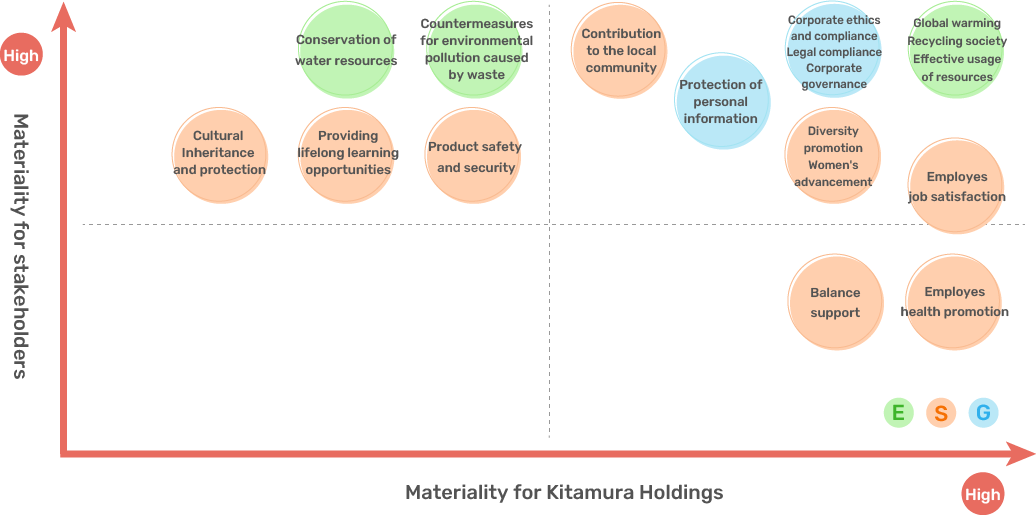Process for Identifying Materiality (Priority Issues)
Kitamura Holdings aims to create a sustainable society and increase corporate value through its business
activities.
To achieve this, we identified social issues that have a large impact on both our company and society
through
the following steps, and after exchanging opinions with all stakeholders such as employees and experts, we set five
priority issues (materialities).
-
STEP 1 Selection of social issues
Based on Kitamura Holdings' mission of "Reflecting Time and Living with Your Heart," we held SDGs workshops to deepen employee understanding and to identify social issues.
In setting social issues, we have incorporated and organized global issues such as SDGs (Sustainable Development Goals) along with the GRI Standards of International Guidelines.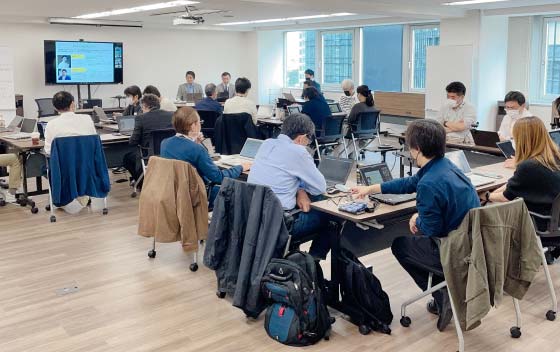
SGDs workshop scenes (conducted in November 2021) -
STEP 2 Evaluation of issues and determination of priorities
We discussed the issues by formulating the company's priority issues (materialities), by determining evaluation viewpoints for such social issues as "social needs" and "degrees of relevance to business", and by using an evaluation axis to determine the kind of society that can become part of our company's materialities.
In addition, we've determined priorities after understanding and reflecting "expectations from society" by conducting interviews with stakeholders such as employees and outside experts. -
STEP 3 Determining priority issues (materialities)
It was decided after the discussion of members of the board of directors to receive advice from experts from the three perspectives: E (environment), S (society), and G (governance). These are regarding content formulated as priority issues (materialities) by conducting stakeholder dialogues.
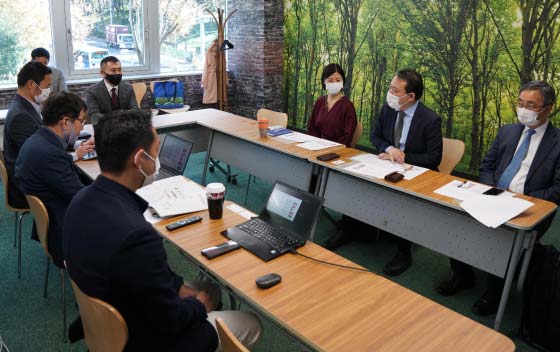
Hearings with experts (conducted in November 2021)
Stakeholder Dialogue Participants
* The biographies of the participating members are current as of the date of the stakeholder dialogues.
-
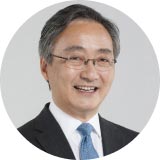
Ken Shibusawa Chief Executive Officer, Shibusawa and Company, Inc.
In 2001 Shibusawa and Company Co., Ltd. was founded and became the representative director. Commons Co., Ltd. (currently, Commons Investment Trust Co., Ltd.) was founded in 2007, and became chairman of the board in 2008. The Kishida government's "New Capitalism Realization Conference" member, UNDP (United Nations Development Program) SDG Impact Steering Group member, University of Tokyo President's Office Advisor, Brunswick Group Senior Advisor, etc.
-
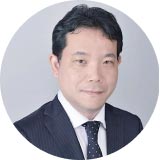
Ken Ito Project Assistant Professor, Graduate School of Media and Governance, Keio University
Research on social impact assessment, 2015 Ministry of Economy, Trade and Industry "Social Impact Bond Study Group in the Healthcare Field" Chairman, Cabinet Office "Mutual Aid Society Creation Council Social Impact Assessment Study WG", in addition to efforts to promote the spread of social impact assessment, social impact bonds, and social investment in Japan, such as serving as chief examiner.
-

Akira Sakano Representative director
Participated in the NPO Zero Waste Academy, which is responsible for the waste policy of Kamikatsu Town, Tokushima Prefecture, which made Japan's first "Zero Waste Declaration". Set to co-chair the 2019 World Economic Forum Annual Meeting (commonly referred to as the Davos Conference) alongside Microsoft CEOs. From 2020, working on the formation and development of a model for a sound material-cycle society at Zero Waste Japan.
